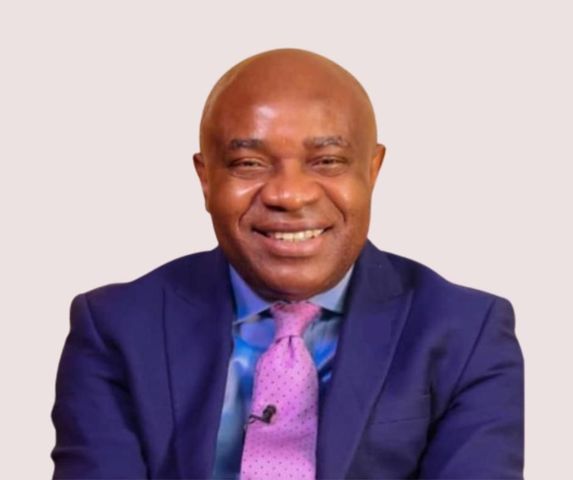How to lead an African public health institute through a pandemic
The West African Health Organization faced numerous challenges during the COVID-19 pandemic but was ultimately able to support a coordinated response in the region. Here are the most important lessons the outgoing Director General Professor Stanley Okolo learned during his tenure

Following an urgent call to action by the Emergency Meeting of ECOWAS ministers of health on February 14th 2020, the West African Health Organization led the Covid-19 effort in the West Africa region, providing co-ordination and support to its member states. It was a challenging time but WAHO demonstrated its value in protecting the public’s health. The key things I learned were the importance of collaboration as we are stronger together, local strategic communication, and having sufficient capacity to deliver.
My first point is that coherence, coordination, and collaboration is vital. WAHO’s first priority was to ensure that West African health ministries and institutions continued to work together to provide better quality healthcare services in an efficient and effective manner. WAHO convened member states to enable greater coordination and information sharing at political and operational levels. It also created formal platforms for advocacy and consensual decision-making such as the Ministerial Coordination Committee. These engagements enabled the harmonization of travel and cross-border controls, a unified cost of PCR tests across Member states, the development of centralized logistics, and pooling of resources, equipment and training.
Next, a regional approach to strategic communication is an essential part of outbreak response. WAHO’s work in this area increased the profile and credibility of public health institutions and contributed to saving lives. WAHO built digital platforms for information sharing, and created a regional health information repository, which collated data across the region and published regular regional situation reports. These reports were shared widely and facilitated decision-making across the region.
Finally, health facilities must be adequately equipped to deliver on the region’s priorities. WAHO contributed to strengthening the capacity of health facilities in the West Africa region to respond to the pandemic. Capacity strengthening initiatives addressed gaps in the diagnosis and management of COVID-19 cases, with 25 virtual training programs reaching 3,400 medical professionals as well as the creation of peer learning events and forums. WAHO officers were also deployed to support member states develop their contact tracing, data management, and laboratory capacities.
However, WAHO’s response to COVID-19, while impactful, was constrained by its limited resources. The WAHO COVID-19 Intra-Action Review conducted in 2021, highlighted the three key lessons relating to WAHO’s role and the importance of its mandate but also identified a number of institutional weaknesses. These included the organization’s historical understaffing, limited visibility, the burden of bureaucracy, and the limited agility of emergency response mechanisms, which together continue to be important barriers to the organization's work.
These findings, together with assessments of Africa’s changing public health ecosystem and needs over the long term have informed the development of a new strategy for WAHO, Vision 2030. The development of Vision 2030 – supported by the Tony Blair Institute – was an opportunity to reflect on the identity of the institution, and the need to develop its capacity to respond to the region’s evolving health needs. This new strategy was approved by the ECOWAS Assembly of Health Ministers in February 2022 and sets a longer-term vision and objectives for the organization.
Vision 2030 identifies five strategic priorities, including:
- Reinforcing the capacity of the Regional Centre for Surveillance and Disease Control (RCSDC) and of Member States to prevent, detect, and respond to health emergencies,
- Leadership, governance, and resource mobilization to improve the efficiency of health systems as well as the resources available to them, and
- Institutional capacity strengthening, to ensure that WAHO has the necessary systems, structures, processes and resources to deliver all of its mandate.
This new strategy provides an opportunity for the new leadership of WAHO to harmonize and strengthen public health efforts in the region, building on the lessons from the experiences from Ebola, COVID-19, and other public health priorities, to contribute to a healthier West Africa.
This article originally appeared in PLOS Global Public Health.
How can we help you?
believes that the quickest path to improving health outcomes to identify positive outliers in health and help leaders implement lessons in their own countries.
With our network of in-country and cross-country partners, we research countries that have made extraordinary progress in important health outcomes and share actionable lessons with public health decisionmakers.
Our research can support you to learn about a new issue, design a new policy, or implement a new program by providing context-specific recommendations rooted in Exemplar findings. Our decision-support offerings include courses, workshops, peer-to-peer collaboration support, tailored analyses, and sub-national research.
If you'd like to find out more about how we could help you, please click . Please consider so you never miss new insights from Exemplar countries. You can also follow us on Twitter and LinkedIn.
